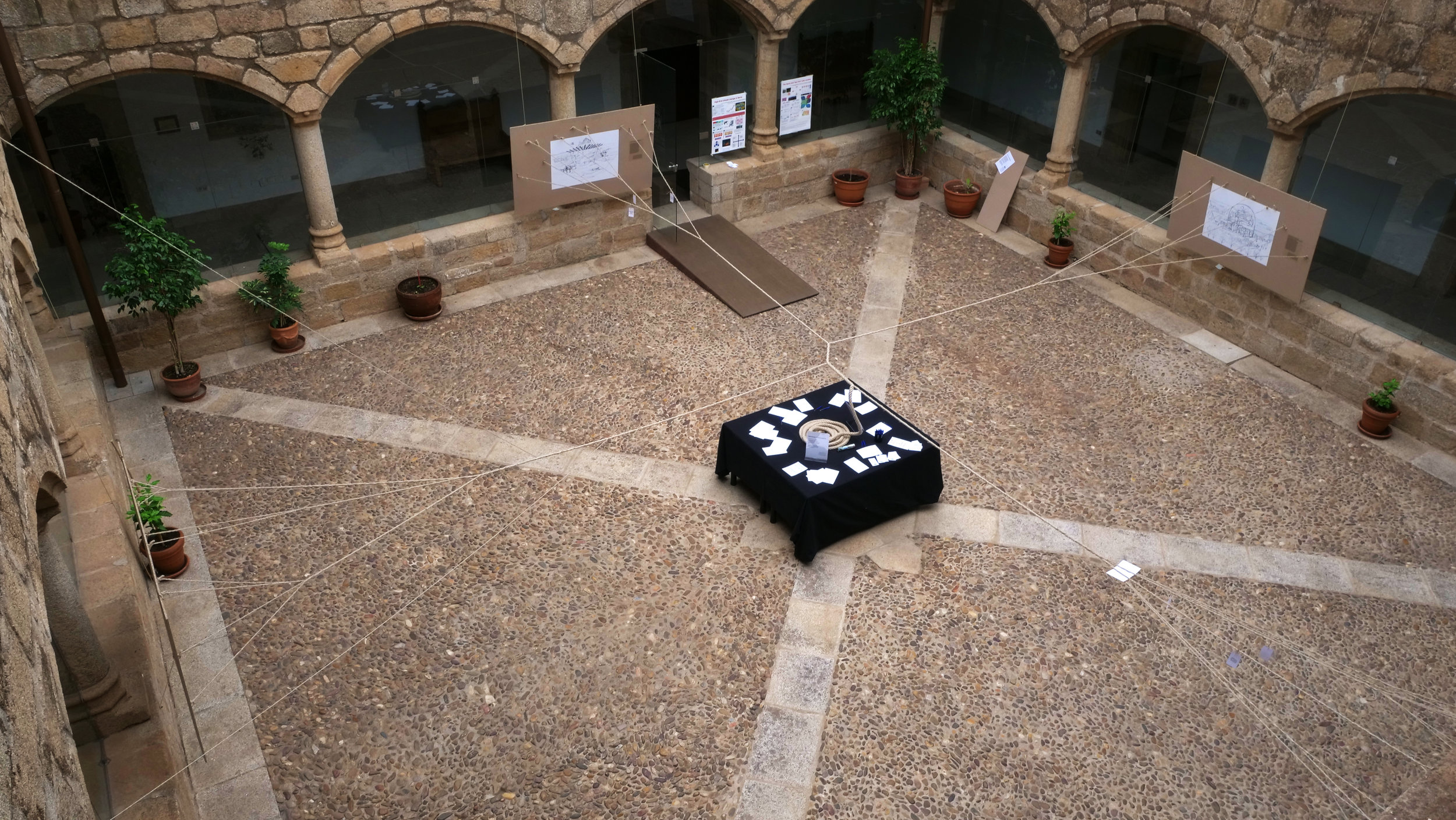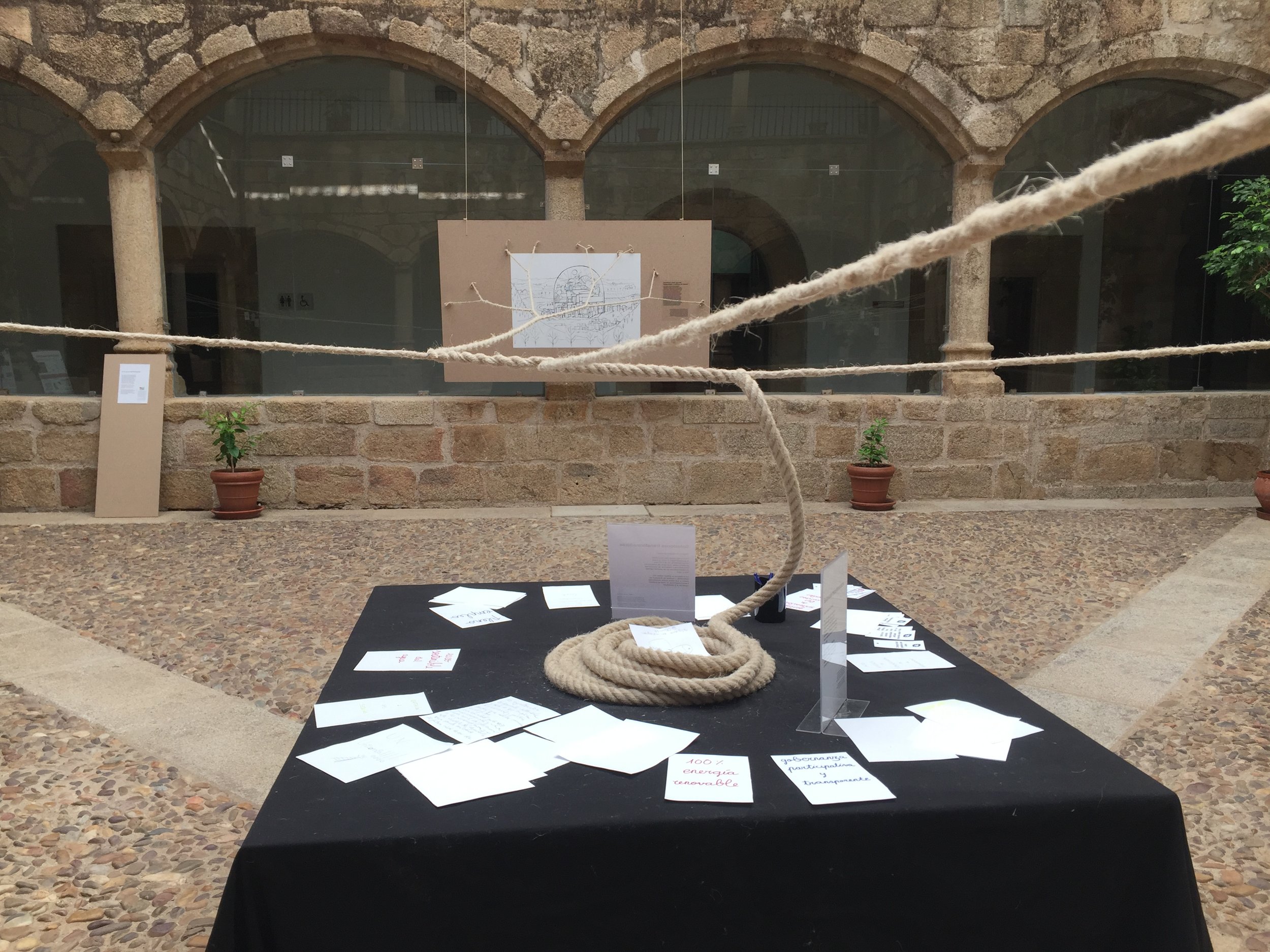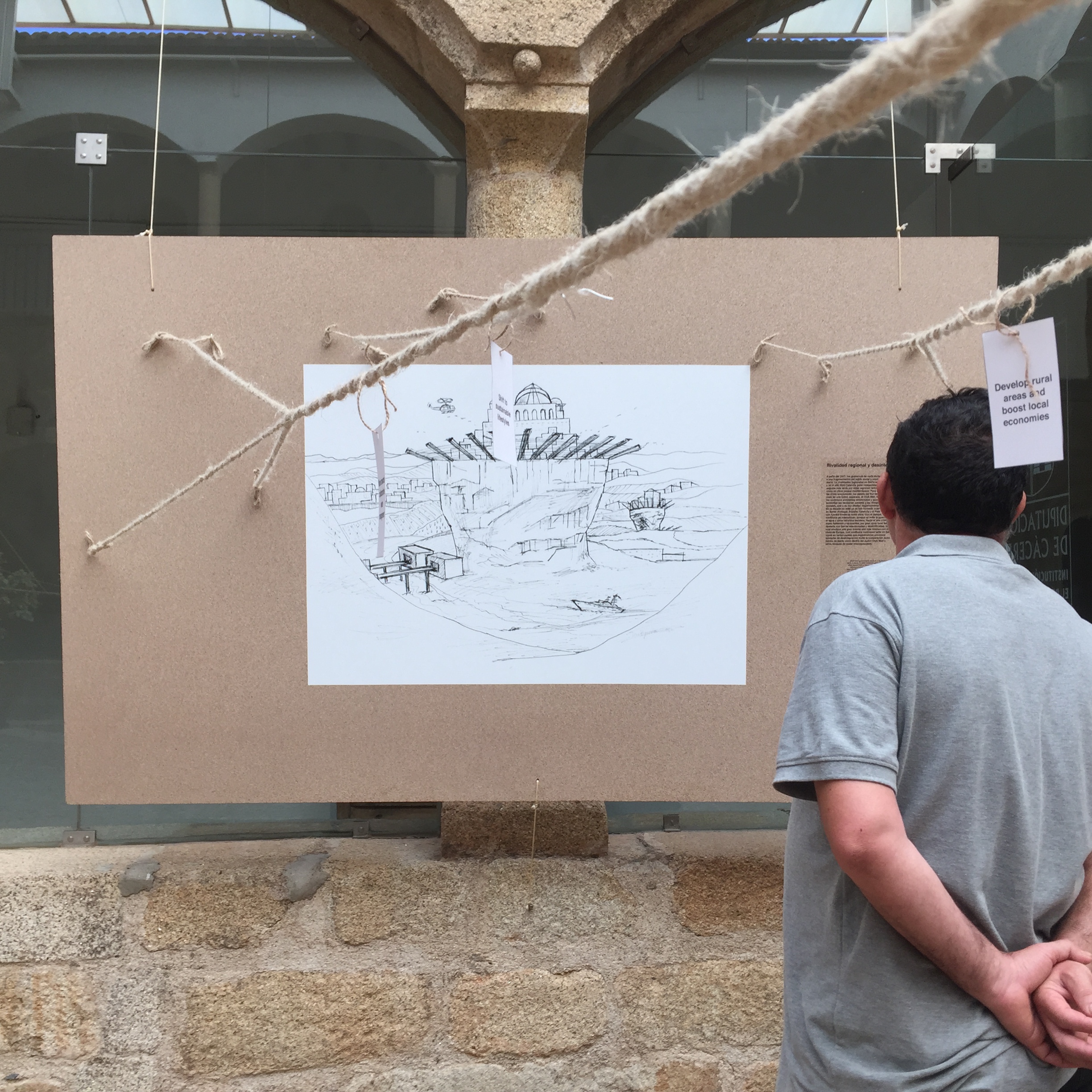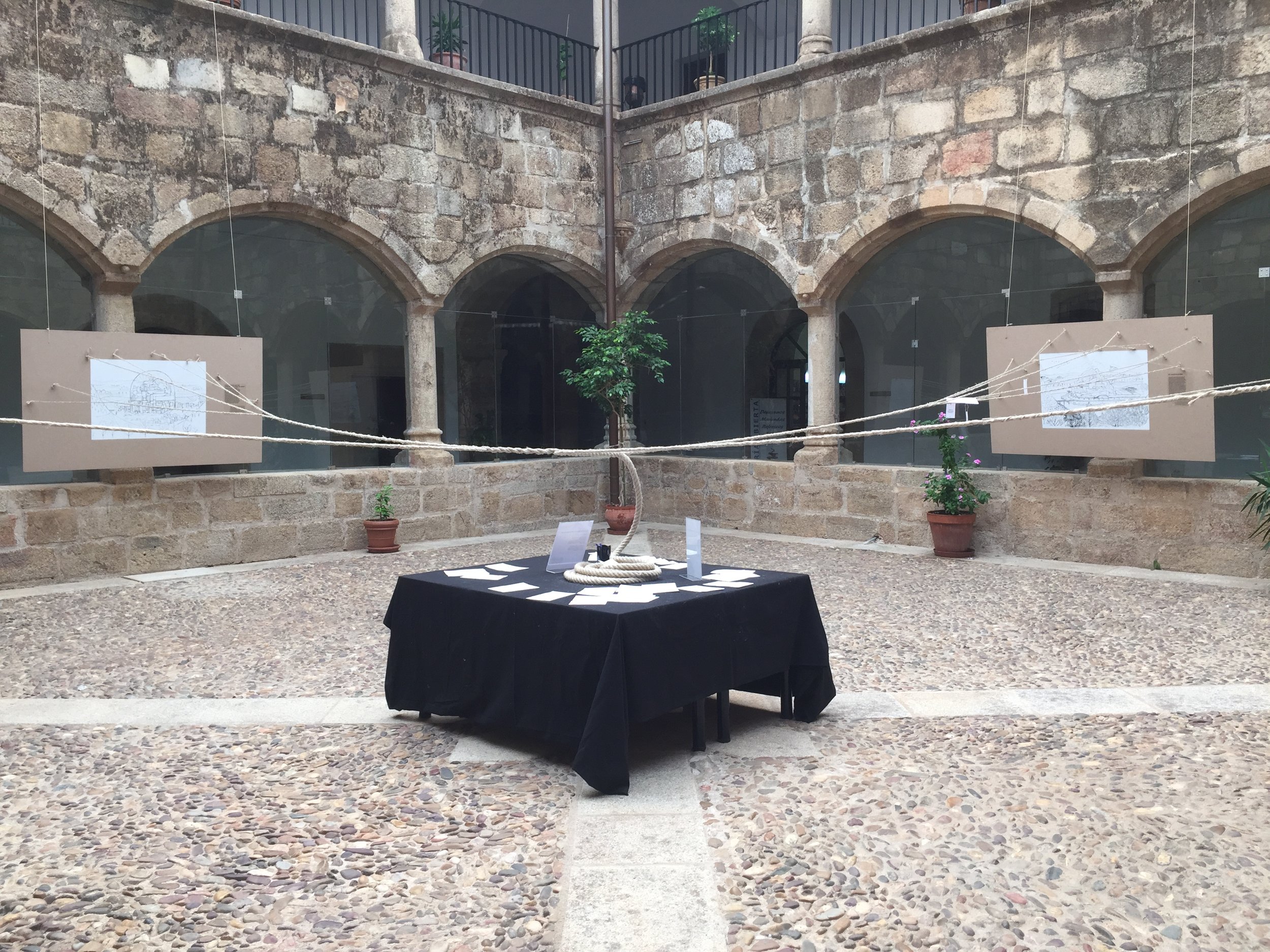A-Corda
A-Corda
INSTALLATION, 2017
LEAD ARTIST
A participatory installation inviting visitors to imagine and envision the future. The Iberian Peninsula is likely to be one of the most affected regions of Europe by climate change. The installation work emerged from a 3 years long collaboration within the EU-project IMPRESSIONS between artists, climate scientists and stakeholders from Iberian Peninsula. Concept and installation by Diego Galafassi and David Tàbara with drawings by Tone Bjordam. Scenario storylines co-produced within Impressions workshops. Presented at San Francisco Cultural Complex in Caceres, Spain during September and October 2017.
inequality future
Economic challenges and environmental accidents are exacerbated by new European and global crises, which leads to an increased migration from Northern Africa and the Middle East. In Iberia, unemployment rises to record levels, this eventually results in social unrest and massive protests. Social stratification intensifies with strong high-income elites and a divided large lower class, bringing about strong tensions within and between social classes. This unstable social situation escalates in the 2040s, and lead to a shift in the political system. New governments establish an oligarchical system with power and money gradually centralised and controlled by an elite of a few companies and central governments. The political and industrial elite successfully implements a strategy of “subtle” enforcement of inequality through education and keeping people busy on low skilled tasks, with low future expectations. To their benefit, the elite invests in solar and wind energy, eventually becoming a market leader.
Fossil fuel future
The burst of the financial bubble increases the need for social aid and subsidies for Iberia, which is facilitated by an increasing economic surplus in the north of Europe. Crucial is the establishment of a connection of electricity networks that increase access to external (fossil) resources. Iberia is part of this network and located strategically in the energy nexus. Iberia also starts exploiting its own resources, while intensifying agriculture and forestry. In the 2040s, environmental problems occur that are combatted with successful technological solutions. The accompanying environmental destruction goes by unnoticed as most people live in the cities, where water, food, and energy supply are secured. By 2060, Iberia totally depends on technology, fossil fuels, and investments of large companies. Ultimately, a number of environmental disasters lead to an increased awareness across Iberia that technology can no longer sustain agricultural production. The outlook is uncertain as the fossil-fuel based development model collapses and business opportunities decrease.
divided future
Short-lived governments leads to a fragmentation of the social and economic fabric in Iberia. In 2030 Catalonia gains independence, which is later followed by other regions both in Iberia and in other Mediterranean countries. To counteract economic crises, the Southern countries unite in a separate Union, the ‘Club Med’. Continued environmental and economic problems increase social tensions and social inequalities, which in turn negatively affect tourism. By the 2060s four countries have come to exist in Iberia: Portugal, Spain, Catalonia and the Basc Country, with strong borders between them. Over time, conflicts escalate although war over water and other scarce resources is prevented. By 2100, a deserted and desertified inland rural Iberia remains and this produces a large divide even further than with the rest of Europe. Continuous conflicts across multiple countries which experiment such similar disintegration processes occur elsewhere and this limit cooperation within Club Med and with other international power blocs.
sustainable future
Triggered by continuing and growing social participation in environmental, social, and economic issues and fuelled by a European social-oriented political framework, Iberia embraces a path towards a new development model. Initially at slow pace, but increasing rapidly and supported by socially and environmentally sustainable policy making, a fundamental change is achieved towards boosting education, innovation, job opportunities in the green sectors (renewables and reuse of materials), and eventually green technologies. Because of the strengthening of the democratic governance structures, globalisation is no longer opposed to local sustainability, but on the contrary, positive sustainable development synergies are being created. This leads also to an economic shift in many sectors, whereby technology development and high- value exports become the new backbone of the Iberian economy. By 2100, the new decision- making culture and practice culminates in the new development model for the Iberian countries. This model encourages broad public participation, institutional collaboration and includes a harmonic integration of health, social, economic, political and environmental sectors.














